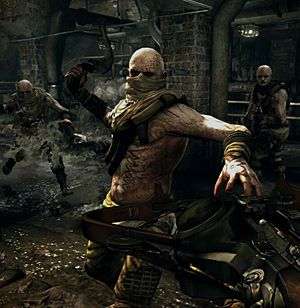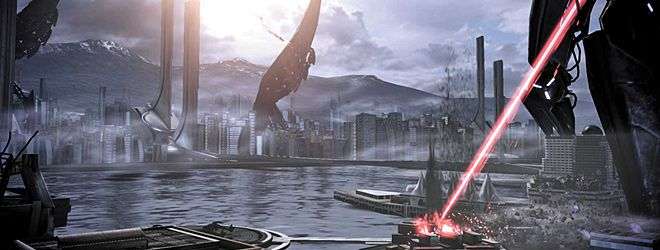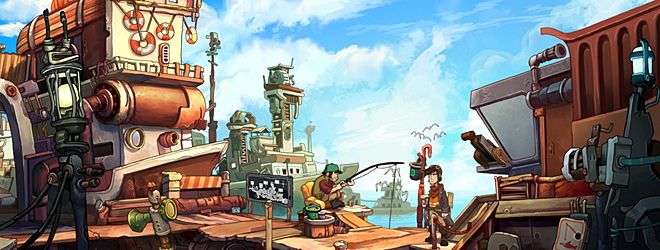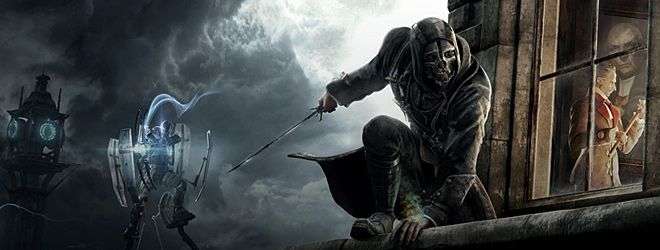Wading To The End
by Edward
 Picture this: you meet someone on a night out. You approach the situation with some trepidation, but before long you feel like it was the right way to go, and you leave the evening with a phone number. You eagerly phone the next day and set up a date, and, before you know it, you’re taking them out to dinner and a movie, and as you say goodbye, you lock lips tenderly for a few seconds. Dizzy with anticipation of what the future brings, you arrange for another date, and another, and another, because you’re falling pretty hard and to you, they seem pretty special. Finally, the big day comes, and you’re both alone. This is the end of your journey. This is what all your hard work has been building towards. You strip, hold them tenderly… and suddenly stop at the feeling of something warm and the arrival of an unpleasant stench. You look down at your sheets, and you find your significant other has emptied both of their bottom holes all over your bed, and as you discover this, they vomit all over your face with the third hole.
Picture this: you meet someone on a night out. You approach the situation with some trepidation, but before long you feel like it was the right way to go, and you leave the evening with a phone number. You eagerly phone the next day and set up a date, and, before you know it, you’re taking them out to dinner and a movie, and as you say goodbye, you lock lips tenderly for a few seconds. Dizzy with anticipation of what the future brings, you arrange for another date, and another, and another, because you’re falling pretty hard and to you, they seem pretty special. Finally, the big day comes, and you’re both alone. This is the end of your journey. This is what all your hard work has been building towards. You strip, hold them tenderly… and suddenly stop at the feeling of something warm and the arrival of an unpleasant stench. You look down at your sheets, and you find your significant other has emptied both of their bottom holes all over your bed, and as you discover this, they vomit all over your face with the third hole.
Time passes, and you don’t remember how great they were, or how happy they made you feel; you just remember that you couldn’t shift the smell out of your room for weeks after. What I’m saying is, I’m bad at making metaphors that aren’t disturbing in the same way videogames are bad at making endings that are fun to play. In the last few years, I’ve started to lose count of how many games I’ve finished where the final act takes what made the previous hours fun and throws it out the window because of a pre-conceived notion that it has to be more difficult because beyond it lies only credits. This isn’t wrong; it only makes sense that a title relies on a slowly increasing level of challenge to keep players going, and provide more tools – or a honing of those previously acquired – to overcome the odds. What actually tends to happen is that “increase the challenge” becomes “do this entire sequence without making a single mistake”, “throw more enemies into the mix than is actually feasible to deal with”, or a combination of such, depending on the genre.
 It’s a trap so hilariously obvious that you might as well station Admiral Ackbar nearby and stick banana peels in front of it, yet I’ve played so many titles that are guilty of this that soon you’ll be able to see the mountain of bodies a mile away. Time and again you’ll find yourself enjoying yourself right up until the end sequences, when controllers will be thrown, swears will be screamed and quits will be performed in rage. The difficulty curve doesn’t spike, it forms a wall that most won’t find themselves containing the willpower or the patience to take apart brick by boring brick.
It’s a trap so hilariously obvious that you might as well station Admiral Ackbar nearby and stick banana peels in front of it, yet I’ve played so many titles that are guilty of this that soon you’ll be able to see the mountain of bodies a mile away. Time and again you’ll find yourself enjoying yourself right up until the end sequences, when controllers will be thrown, swears will be screamed and quits will be performed in rage. The difficulty curve doesn’t spike, it forms a wall that most won’t find themselves containing the willpower or the patience to take apart brick by boring brick.
What makes this particular egregious is that in the worst cases, developers guilty of this will expose fundamental flaws in their titles that would otherwise have remained under the veneer, were it not for their trespasses. Take Spec Ops: The Line, for example. The first half of the game mistakenly gives the player the impression that they’re about to embark on another gritty military shooter, and that misconception is provided wholly through the mechanics, as they’re essentially identical to the majority of titles the second half of Spec Ops aims to deconstruct. However, what Spec Ops embraces rather than condemns is the genre’s attempts at increasing the challenge by throwing more enemies at the player than they can reasonably confront with the tools at their disposal.
 After several attempts result in you being gunned down and patronisingly asked if you want to lower the difficulty, you slowly realise that you’re not entirely at fault. After all, how can it be your fault if you were shot to death when you were hiding behind cover? Why you should be punished because running into cover is a great deal clunkier than it should be? Why are you made to fail when your team-mate runs into a hail of bullets, and it’s impossible to revive him without being gunned down yourself? Admittedly, your mileage may vary with this example, as a popular interpretation of Spec Ops’ final chapters is that it deliberately makes those chapters horrendous to play because they don’t want you to have fun, but the point remains.
After several attempts result in you being gunned down and patronisingly asked if you want to lower the difficulty, you slowly realise that you’re not entirely at fault. After all, how can it be your fault if you were shot to death when you were hiding behind cover? Why you should be punished because running into cover is a great deal clunkier than it should be? Why are you made to fail when your team-mate runs into a hail of bullets, and it’s impossible to revive him without being gunned down yourself? Admittedly, your mileage may vary with this example, as a popular interpretation of Spec Ops’ final chapters is that it deliberately makes those chapters horrendous to play because they don’t want you to have fun, but the point remains.
Alright, let’s try Mass Effect 3. You’ve fought your way through the Galaxy, you’ve united (or destroyed) alliances long thought dead, you’ve saved (or destroyed) planets and races, and you’ve cherished (or destroyed) the posterior of your significant other in Shepard’s journey to get back to Earth. You touch down, you say goodbye to all of your squad members, prepare yourself for the final confrontation… and battle through a section that should only have lasted about five minutes but has somehow taken up most of your evening and caused a blue streak so strong the BBFC rated your mouth an 18 before you finished your first sentence. “That ending must be the secret to everlasting love” you hear yourself utter “because if I’ve had to battle against infinitely re-spawning enemies that can one-hit kill my squad for a conclusion they’re going to be pressured into elaborating on in DLC, then every member of Bioware can go slam their genitals in a doorway”.
By the time I actually reached the credits, I didn’t feel satisfied that I overcame insurmountable odds, and nor did I feel like I’d earned the right to see the end of the story, I felt like I’d succeeded in spite of the game’s mechanics and attempts making the ending artificially difficult instead of fun to play. I was no longer the saviour that this elaborate power-fantasy had spent three titles leading me to believe, I was a fly bashing aimlessly into a window repeatedly until someone eventually deigned to open it. I don’t look back on my experience fondly; I recall the pointless frustration and effort I had to put in for a lacklustre return on my investment. Incidentally, Banshees are the worst.
 Shooters aren’t the only guilty party; nearly every genre is guilty of it in some way or another. Platformers like OIO boast an end-sequence that requires pixel-perfect jumps and precognitive abilities in order to surpass them, racing games will force you to race against cars that can overtake you and zoom off into the horizon at a moment’s notice, and if you’ve never fought an end-boss that keeps getting up long after the battle should have ended, then I genuinely envy you.
Shooters aren’t the only guilty party; nearly every genre is guilty of it in some way or another. Platformers like OIO boast an end-sequence that requires pixel-perfect jumps and precognitive abilities in order to surpass them, racing games will force you to race against cars that can overtake you and zoom off into the horizon at a moment’s notice, and if you’ve never fought an end-boss that keeps getting up long after the battle should have ended, then I genuinely envy you.
Even point-and-clicks can be guilty of this, with Chaos on Deponia – a title I otherwise loved – standing guilty of an eleventh-hour puzzle that could be figured out easily, but resulted in a war of attrition against your patience as the end was repeatedly delayed thanks to said puzzle’s propensity to screw you over just as it was nearing completion, forcing you to hit reset or – if your tolerance had completely scarpered by the umpteenth attempt – the magic combination of Alt-F4 that closes down the whole program and replaces it with anything else in the world. If there’s a rule in the developer’s handbook that dictates end-game success has to rely on flukes and a superhuman amount of patience instead of skill and the use of the tools the previous nine-tenths of the title has told us to rely on, then I propose a rule in the gamer’s handbook that says we’re allowed to punch whoever wrote that previous rule.
It especially boggles the mind because all it really does is discourage players from seeing out the product to the end. People don’t actively pay money to go see a film only to walk out on the last twenty minutes, and players don’t deliberately spend multiple times the cost of a movie just to stop playing two chapters from the end. Locking the end behind brick-wall difficulty is only going to frustrate your audience and open the finale up to more scrutiny than it would otherwise suffer. Would I have hated the end of Red Steel if I hadn’t had to suffer through a disproportionately difficult sword-fight to get there? Well, yes, I would, because the end of Red Steel basically amounts to a series of still images while an old man tells you that what was killing both him and his daughter wasn’t the poison that you just had to find a cure for, but their intolerance of other people. In that case, I’m pretty sure Ubisoft were just trying to protect us from themselves, but more often than not I want to see the end of the story that the developers have created, so why don’t they want me to see it?
 This isn’t me having a whinge about games nowadays being too difficult (though I’ve ragged on titles that are pointlessly difficult before), it’s about the fact that developers have forgotten that, for the most part, we’re shelling out wads of our ill-gotten currencies for entertainment and maybe we want to see that through to the end. Last time I checked, repeating five minutes of gameplay for over an hour isn’t entertainment, and the flurry of swears, frustration and exasperated moaning to friends on Facebook isn’t my idea of entertainment, although I’m increasingly convinced some people have a bowl of popcorn on the go as soon as they receive a message from me. That’s why titles like RAGE aren’t getting away from this unscathed either. In this case, id’s effort draws ire from having a rushed ending sequence that’s almost startlingly easy even if you elect not to use the overpowered gun they give you moments before (although that’s because by that point you’ve stocked up on wing-sticks, which kill everything in a throw or two, even on hard mode).
This isn’t me having a whinge about games nowadays being too difficult (though I’ve ragged on titles that are pointlessly difficult before), it’s about the fact that developers have forgotten that, for the most part, we’re shelling out wads of our ill-gotten currencies for entertainment and maybe we want to see that through to the end. Last time I checked, repeating five minutes of gameplay for over an hour isn’t entertainment, and the flurry of swears, frustration and exasperated moaning to friends on Facebook isn’t my idea of entertainment, although I’m increasingly convinced some people have a bowl of popcorn on the go as soon as they receive a message from me. That’s why titles like RAGE aren’t getting away from this unscathed either. In this case, id’s effort draws ire from having a rushed ending sequence that’s almost startlingly easy even if you elect not to use the overpowered gun they give you moments before (although that’s because by that point you’ve stocked up on wing-sticks, which kill everything in a throw or two, even on hard mode).
Dishonored is particularly guilty of this too; the end builds up so that the player’s expectation is for a conflict that never comes. The final part of the level is so laughably easy that suspicions arise that it’s lulling you into a false sense of security for an epic battle, but all that awaits you is either an interrupted monologue or a battle that lasts seconds, followed by some still images and narration that tell you what happened after. There’s no real resolution, you’re not entertained and it’s certainly not fun. The song remains the same; just replace “frustration” with “disappointment” and it’s the same argument wearing a different skin. The final moments can’t be too easy or there’s no real sense of achievement for getting there, and they can’t be too difficult, or you risk the odds of players giving up at the last hurdle and open your end up to greater scrutiny as they become more frustrated and less entertained.
So what am I really trying to say after all this? As I’m not very good at metaphors, I was contemplating copying and pasting a paragraph from Fifty Shades of Grey and hiding the conclusion within, forcing you to wade through a horrendous mire of shit in order to reach it. However, what’s far likelier to happen is that much like game developers of the present, I’ll probably attempt to make a satisfying conclusion, get lazy and give up before I reach the end of this se
Last five articles by Edward
- Best of 2015: Journey's End: A New Beginning
- Journey's End: A New Beginning
- You Can't Choose Your Happy Ending
- Okay, Let's Fix Comedy In Games - The V-Effekt
- Time Keeps On Smashing Away






















There are no comments, yet.
Why don’t you be the first? Come on, you know you want to!